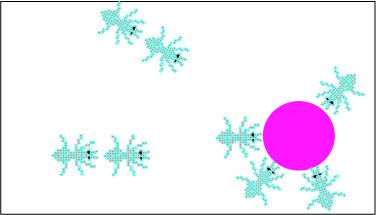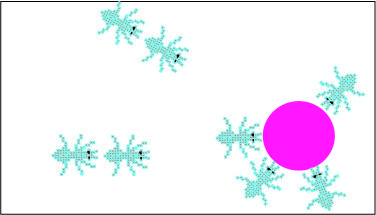Linear recruitment leads to allocation and flexibility in collective foraging by ants (1.0.0)
How does collective behavior emerge from the actions of individual agents? In this model, we explore the collective consequences of a linear form of recruitment, the tandem run. Empirically, Temnothorax ants perform allocation decision-making and show flexibility (being able to reallocate after a change in resource distribution).
The thesis of our paper is that these collective behaviors are a direct consequence of linear positive feedback. In the model, ants can occupy one of three states: uncommitted, committed to feeder A, or committed to feeder B. The user is able to alter various important parameters (discovery, recruitment, and attrition) as well as switch the location of resources to explore the collective choice of ant colonies.

Release Notes
Associated Publications
Animal Behaviour, in revision
This release is out-of-date. The latest version is
1.1.0
Linear recruitment leads to allocation and flexibility in collective foraging by ants 1.0.0
Submitted by
zachary.shaffer
Published Jul 11, 2013
Last modified Feb 23, 2018
How does collective behavior emerge from the actions of individual agents? In this model, we explore the collective consequences of a linear form of recruitment, the tandem run. Empirically, Temnothorax ants perform allocation decision-making and show flexibility (being able to reallocate after a change in resource distribution).
The thesis of our paper is that these collective behaviors are a direct consequence of linear positive feedback. In the model, ants can occupy one of three states: uncommitted, committed to feeder A, or committed to feeder B. The user is able to alter various important parameters (discovery, recruitment, and attrition) as well as switch the location of resources to explore the collective choice of ant colonies.

